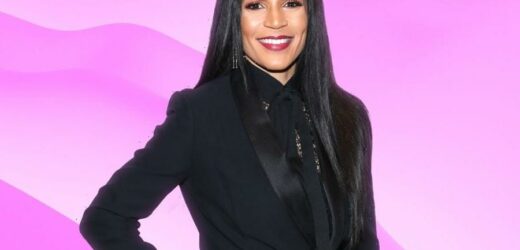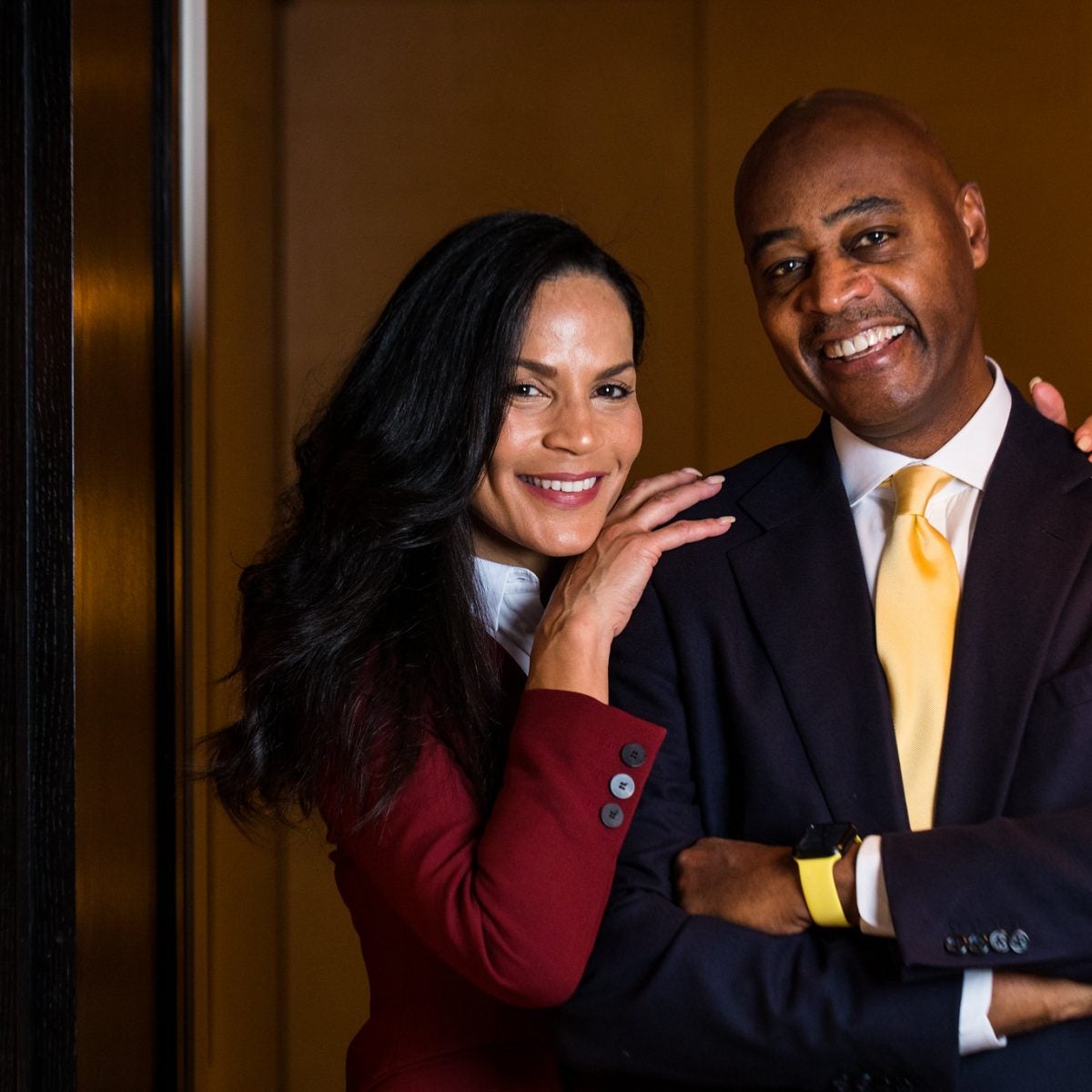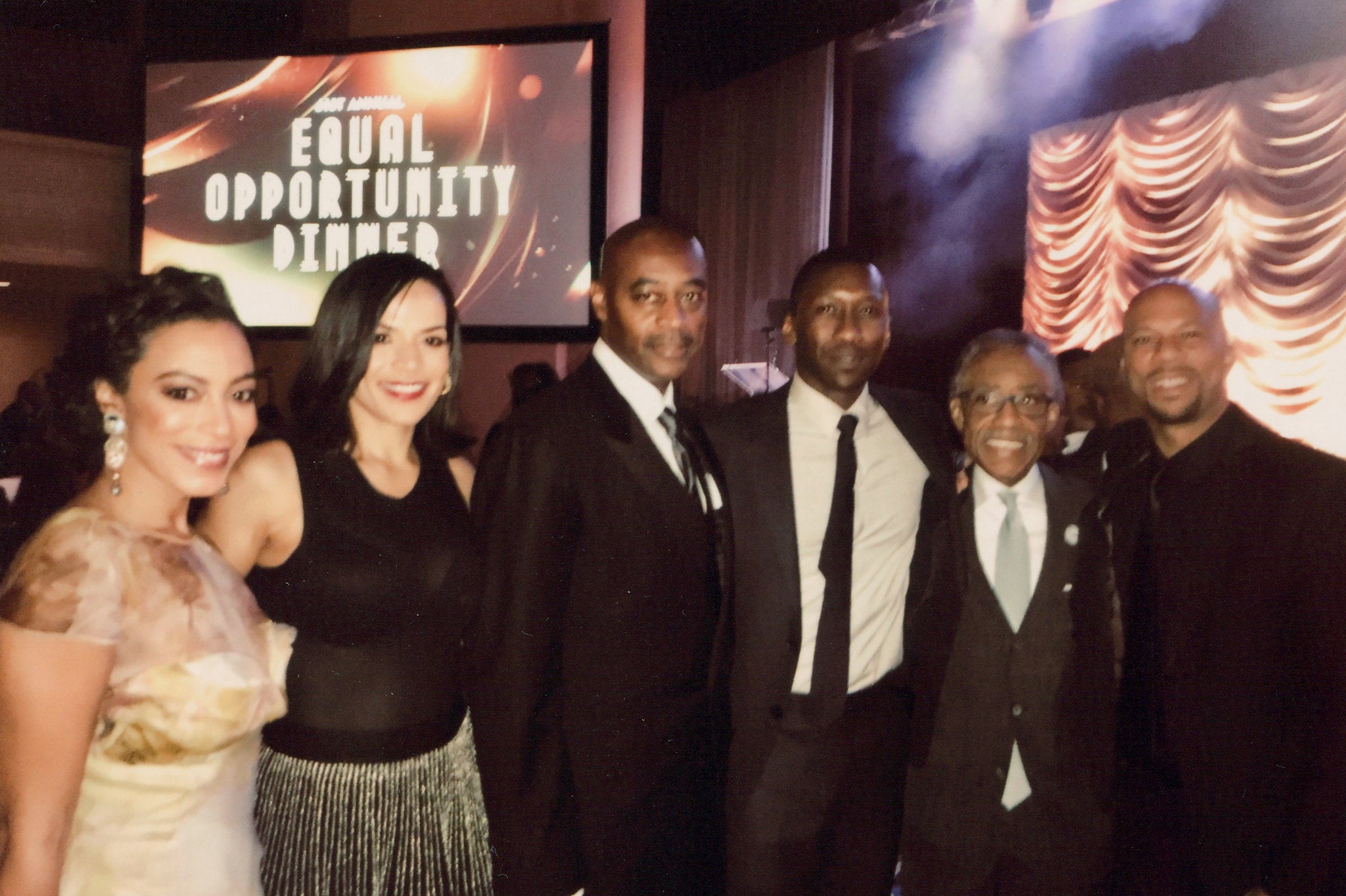Next Tuesday, New York City may have its next Black mayoral nomination. The June 22 Democratic primaries feature four candidates vying to lead the “the greatest city in the world” as its next Black mayor since David Dinkins. Ray McGuire, CitiGroup’s former vice chairman, competes alongside Eric Adams, Maya Wiley and AfroLatina Dianne Morales to fill the void left by Dinkins, who lost his re-election in 1993 to Rudolph Giuliani.
Ray McGuire, a Wall Street exec, has been endorsed by entertainment heavyweights such as Jay-Z and Mary J. Blige but it’s the support of his wife Crystal McCrary McGuire that best exemplifies how how he’ll transition from private banker to public servant. The lawyer-turned-Hollywood creative, who directed Little Ballers and executive produced the small screen series Leading Women, outlines why her husband has long advocated for Black and Brown women, how he’s equipped to revive the city’s financial disparities and what programs she’d support as New York City’s First Lady.
Given your background as a director and producer, you’re used to the spotlight. Plus your husband Ray McGuire had a huge job as CitiGroup’s vice chairman. But what was the moment he came home and said, I want to run for mayor of New York City?
CRYSTAL MCCRARY MCGUIRE: When we finally made the decision to do it, it felt like jumping off of a cliff, but we’d been talking about it for probably a couple of years, honestly. Here’s the thing a lot of people don’t know about Ray—because to your point, he has been a private guy. Ray was not even on social media until October 2020 when he announced he was running for mayor. But Ray has been a private public citizen servant for 35, 40 years. That’s something that a lot of people just don’t even know about him. …Thirty-five years ago, he was building schools like De La Salle Academy and George Jackson Academy in New York’s under-resourced communities; he was an investor and supporter in Black women owned businesses—Ray was the first Black investor in Melba’s up in Harlem 20 some years ago. He has ensured, through his work with the New York Public Library, that communities that are broadband deserts communities got wifi especially during the pandemic when so many kids went to remote learning. He has built arts and cultural institutions. He has ensured that just businesses across every spectrum had access to capital, access to resources. He spearheaded a report before he left Citi that researched the economic cost of racism in America. That report’s key finding was that racism, specifically against Black people in America, has cost the U.S. economy $16 trillion over the last 20 years. And it ranges in how it looks: the systemic economic racism for Black people not getting mortgages, not getting the economic opportunities, not having generational wealth. The systemic economic racism that has been in place has not only hurt Black and Brown communities, but it has hurt the entire U.S. economy.
But how is that informing his plan for New York? Because what I’m hearing a lot is that he will save New York City financially.
MCCRARY MCGUIRE: Thank you for bringing up that point. The umbrella of Ray’s campaign, one part of it is, we as a people are not going to have social justice without economic justice, right? So there’s the economic plan, but it’s a resource plan for our folks. I’m thinking about the work that Martin Luther King, Jr. did in the latter part of his life, when he was doing the Poor People’s Campaign work before he was assassinated, and one of his later quotes in life was he said, “What good does it do me if I could sit at this countertop, but I can’t afford to buy a hamburger?” And so the economics are inextricably linked with the social injustice, right? You can see that, and that’s again, the lack of resources. You can see that in policing, right? … So much of this goes back to resource deprivation, how has that impacted in city government. How do we see the systemic racism in New York City government? We see the systemic economic racism in New York City government, the most diverse city in the nation.
Another big platform of McGuire’s is supporting women. Aside from this historic race because there’s so many Black and Brown people running, but he really stands out for his campaign platform of helping women progress. Why is that important for him?
MCCRARY MCGUIRE: So Ray was raised by one of the strongest women I’ve ever met in my life. He watched his mother be dignified, work in three jobs, as a housekeeper, as a dressmaker, he grew up with just tremendous respect for his mother, for women. And so that’s just who he is. As he entered his professional career, Ray has just been known on Wall Street and across boardrooms, across the country, across the city, to be— oftentimes—that lone male voice that was making sure when it’s time for the bonuses to go out for people to get paid, that the women were always getting paid at the same level as the men. Like he was that person in the room making that happen. Ray prioritizes women, particularly Black women, more than he does any other groups to be quite candid. Probably doesn’t sound good in print, but that just happens to be the fact.
https://www.instagram.com/p/CMH3ziSlQcu/
A post shared by Crystal McCrary McGuire (@crystalmccrary)
And has he had any backlash from that?
MCCRARY MCGUIRE: No, because he’s fair, right? He’s fair. And when I say prioritize, he’s not prioritizing Black women in professional or business settings or entrepreneurial arts and culture who aren’t qualified. …But he also let’s women educated women on how they can compete. …So often, we as women have been as qualified, but didn’t even get that chance. He has made sure on multiple levels that we have gotten that opportunity that we deserve and he has just been that person who has been there to help Black women every step of the way.
You could potentially be the First Lady of New York. What’s going to be your platform?
MCCRARY MCGUIRE: Wow. I consider myself to be a social justice warrior, but something that has been really close to my heart for over a decade now but has become even more prevalent, particularly given the increase in gun violence, particularly in Black and Brown under-resourced communities. I’m really passionate about the work of violence interrupters in our communities. One of the programs I’ve been involved in for years is LIFE Camp in Queens. They hire formerly incarcerated men and women, former gang members from the community. And they work in co-production for public safety, actually with police to intervene and prevent violent crimes before they happen. I’m very passionate about the work that they do because they’re offering employment, they’re helping to keep the community safe, they have a whole program with healthy eating, they advocate for mental health through yoga and meditation. I’m more passionate about programs that start on a really small local level with meaningful impact.
I’m curious, because you talk about being a social justice warrior and you speak so passionately about programs you support, but do you see a future in public office for yourself?
MCCRARY MCGUIRE: That’s so funny you say that.
I know you are a creative at heart.
MCCRARY MCGUIRE: I would never say never, but I don’t see it right in this moment. There are some boards I’m interested in supporting that aligns with my interest in social justice, LGBTQ+ rights, the arts and media and entertainment, education. I’ll take a moment to think about that when we get through this because we have a week to grind this out!
Primary election day is June 22 in New York City. Register here to vote.
Source: Read Full Article



